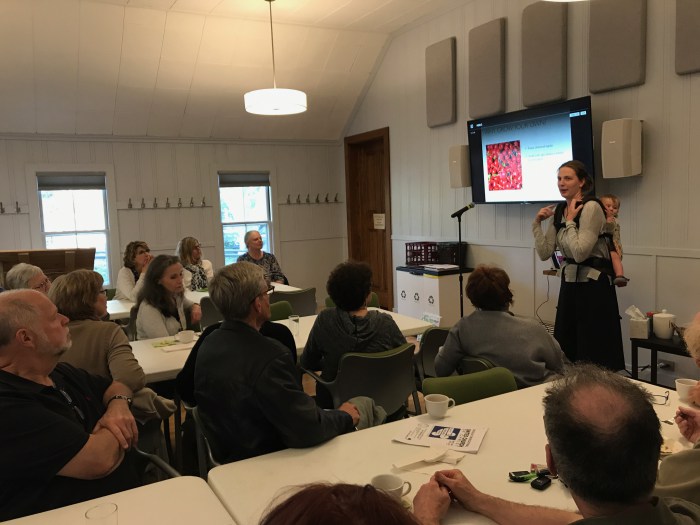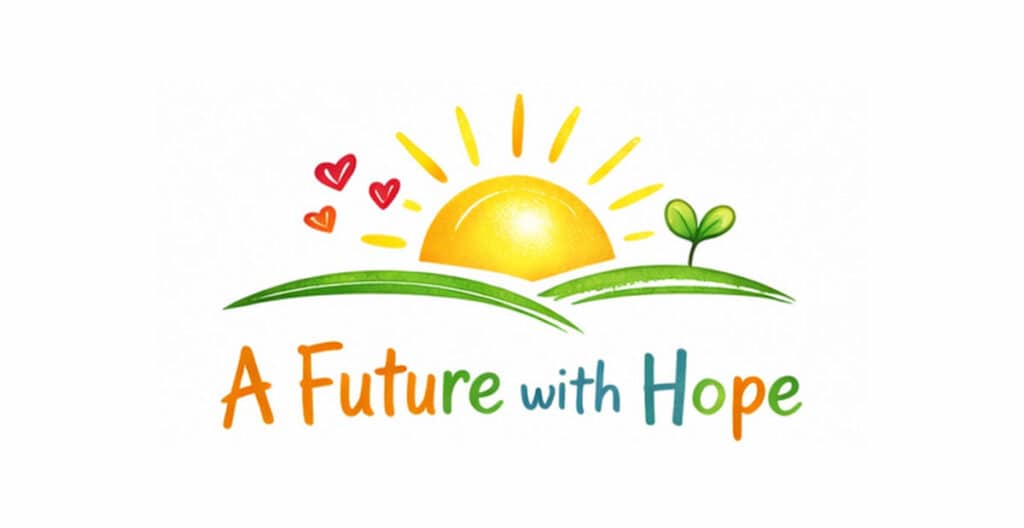Touchpoints: How a Village Church Reaches Out to the World

Saugatuck and Douglas are sister cities — sibling villages, really — on Michigan’s West coast, arranged around a river harbor that flows into Lake Michigan. Our borders interlace to the degree that most residents and no tourists in this town have any idea when they are leaving one village to enter the other. The nearest communities that most people would recognize as cities are Chicago, around the bend of the lake, Grand Rapids to the north, Kalamazoo, east and south of us, and South Bend, over the Michigan border to the south. A majority of the people who own property here have summer and weekend places.
 Why the geography lesson? Because it’s important in understanding how a Creation Justice Team at Douglas United Church of Christ has come to reach beyond these villages to the broader world. It is important to know that our church membership comes to services from cities hours away from their homes, from all of these surrounding places. Our villages triple in resident population in the warm months, with many people washing in and out of town just on the weekends all year long. It is a wonderful blessing that our church membership continues to grow, and a challenge, too, keeping membership informed and church committees running smoothly when our members are so dispersed, at different times, throughout the year.
Why the geography lesson? Because it’s important in understanding how a Creation Justice Team at Douglas United Church of Christ has come to reach beyond these villages to the broader world. It is important to know that our church membership comes to services from cities hours away from their homes, from all of these surrounding places. Our villages triple in resident population in the warm months, with many people washing in and out of town just on the weekends all year long. It is a wonderful blessing that our church membership continues to grow, and a challenge, too, keeping membership informed and church committees running smoothly when our members are so dispersed, at different times, throughout the year.
So… how does a Creation Justice Team do the work of engaging the church body, when that body is dispersed? And do that in the State of Michigan, whose economic past and future have entirely depended on environmental tourism, whose own resident population depends on and famously doesn’t always receive clean water, access to the lakes, access to clean energy, whose clean water is gathered, bottled, and shipped away to a degree that is compounding the environmental deficits we experience from climate change. Whose native populations — the Odawa, Potawatomi, the Fox and Sauk, the Kickapoo, Menominee, and Miami, the Ojibwe, and Huron Tribes — struggle to maintain good health and cultural agency in this environmental… environment. We, and all of the states and Canadian territories that border the great lakes are reeling from the proposed loss of EPA funding for the restoration of our lakes and waterways.
 Our Creation Justice team’s answer is to follow the lead of our pastor, using the Web — Facebook, YouTube, email, etc. — to support and bolster our messages, and create an ongoing presence for dispersed church members. So, we have an education series that brings people together in our Friendship Hall, to learn from local experts what we need to know about recycling, saving energy and buying renewable credits, and most recently green gardening, planting a vegetable patch, learning to compost. We have recycling drives, we march for science and climate change awareness, we will soon help clean up local roadways, and we greened up the church properties. We will soon learn about non-toxic home and body care, and have a former senator talk to us about the Great Lakes initiatives. And all that is great, but many people who want to attend these functions are not here when they happen. How do we help them think about/learn/teach/participate in the creation justice work?
Our Creation Justice team’s answer is to follow the lead of our pastor, using the Web — Facebook, YouTube, email, etc. — to support and bolster our messages, and create an ongoing presence for dispersed church members. So, we have an education series that brings people together in our Friendship Hall, to learn from local experts what we need to know about recycling, saving energy and buying renewable credits, and most recently green gardening, planting a vegetable patch, learning to compost. We have recycling drives, we march for science and climate change awareness, we will soon help clean up local roadways, and we greened up the church properties. We will soon learn about non-toxic home and body care, and have a former senator talk to us about the Great Lakes initiatives. And all that is great, but many people who want to attend these functions are not here when they happen. How do we help them think about/learn/teach/participate in the creation justice work?
That’s the question whose answer may shift over time. But one solution is helping. We started up a blog that we are learning to use to recap and share our work. We are discovering it’s great not only for communicating within, but also outside the church body, sharing what we learn with the wider community. It’s a baby project at this point. But we are learning its value as we go along.
We encourage church members to subscribe to the blog to receive our posts directly in their email inbox. When we have an event coming along, like the Green Gardens event in May, we use the blog, church bulletins, the church Facebook page, our pastor’s weekly email to the congregation, and our own personal Facebook pages and local environmental group pages to broadcast the free event to the community. After the event, which features snacks and desserts our team provides (potlucks seemed to discourage participation on weekday nights), we recap the visit with posted slides from the speakers, along with links that will help people learn more and act. We tweak these programs as we go. The Green Gardens event was the most successful to date in terms of turnout. We invited one of the speakers to come to our service before the event to talk briefly about his passion for composting, and Pastor Sal invited him to join on his regular local radio show outreach to the community.
We have learned that people here need several paths to discover and decide to attend our events, and our outreach works better when we provide lots of “touchpoints” for people inside and outside our membership to learn along with us. We will keep seeking a formula that increases this exposure, building on successes like the Green Gardens event (we almost filled the Friendship hall with that event! Yay!). Our intention is to offer a mix of events and blog posts— things we can do at home mixed with justice issues worldwide, nationally, and locally that need our action and attention. And we will keep on learning!
Related News
The 2026 Climate Hope Art Contest
Last year's winning artwork register your church For the fourth straight year, we...
Read MoreGrowing Weary
In December 1964 during a speech in Harlem, Fannie Lou Hamer declared: “And you can always...
Read MoreOur Moral Center
“We've got about 350,000 people who are dying prematurely from the burning of fossil fuels...
Read More


